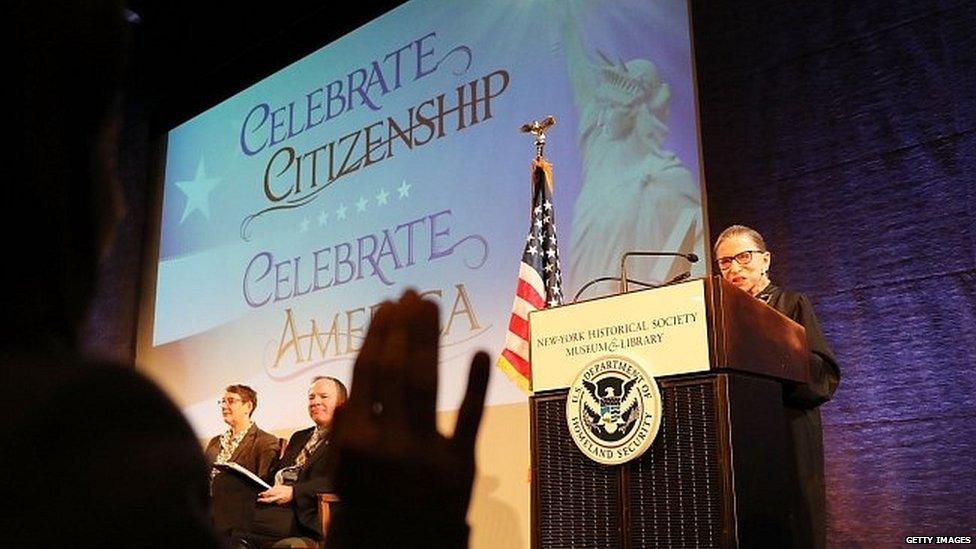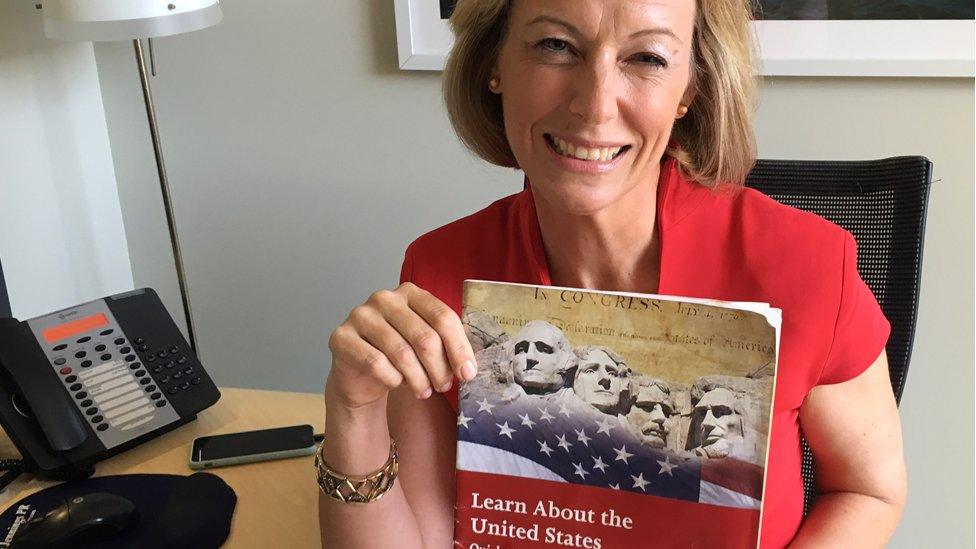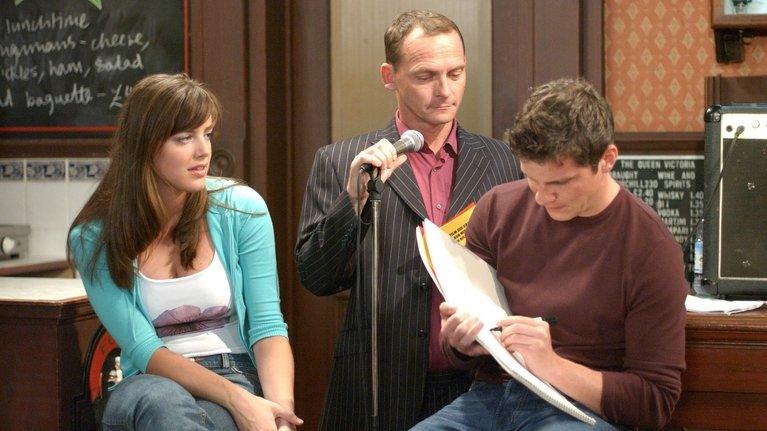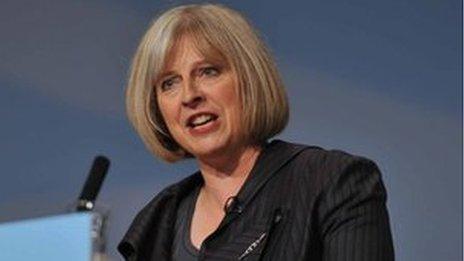Peers say citizenship test should focus on essential knowledge, not trivia
- Published

The 180-page citizenship guide, on which the test is based, includes details about the UK's first curry house
The UK's citizenship test should focus on "essential" knowledge demonstrating whether people can be an "active citizen" not trivia, a new report says.
A Lords committee said expecting people to remember the size of the London Eye or where the UK's first curry house was should not take precedent over how to report a crime or call an ambulance.
It also called for public citizenship ceremonies to have more "impact".
Ministers say a review will see if more emphasis can be put on British values.
The Lords committee on citizenship and civic engagement , externalsaid there was "confusion" about the purpose of the Life in the UK test, taken by hundreds of thousands of people each year who want to become British citizens.
In 2016, 36% of applicants in England failed the 45-minute test - which involves answering 24 questions about British traditions and customs, government, the law and the events that have shaped British history.
The cross-party committee said the 180-page Life in the UK manual, on which the test is based and which was last updated in 2013, contained factual errors and inconsistencies - the current version suggesting that the late prime minister Baroness Thatcher was still alive and making no reference to the Supreme Court.
'Massive book'
The latest manual contained details such as the size of the London Eye in feet and the location and owner of the UK's first curry house "which few British citizens would know and few would think it important for aspiring British citizens to know".
In contrast, the committee said it no longer required "everyday knowledge" of the NHS and local services.
During their inquiry, the peers heard evidence the manual - which has been revised three times since 2005 - was seen by many as intimidating, with one applicant describing it as a "big massive book I am really scared of".
One of the academics who gave evidence to the inquiry said the process risked becoming a simple memory test of little wider value.

In the US and other countries, citizenship ceremonies are big affairs
In calling for a comprehensive review, the committee said the section on British history should "concentrate on those parts that played a key role in the development of the shared values of British citizenship".
While the citizenship ceremonies it had witnessed - where people have to swear allegiance to the Monarch and pledge their loyalty to the UK - were impressive, the committee said they lacked impact and more could be made of the social achievements of those successfully granted citizenship.
It pointed to comments by London Mayor Sadiq Khan, who suggested learning from Canada, where ceremonies are organised by community groups rather than public authorities and Australia, which has a number of events during the year to celebrate citizenship and Australian values.
Australia Day
The Australia Day holiday on 26 January is the focal point for its celebrations. Last year, 350 ceremonies were held on the day involving 12,000 people, with Prime Minister Malcolm Turnbull presiding over one event.
The report also calls for the cost of the naturalisation process to be cut and for citizenship teaching to be a statutory right in primary and secondary schools, with a dedicated teacher in all secondary schools.
Tory peer Lord Hodgson of Astley Abbotts, who chairs the committee, said its recommendations would not cost much money but could make a real difference in improving social cohesion.
"The government has not given sufficient focus to establishing long term programmes which build trust and confidence between state and citizen," he said.
"Individuals do not learn about the government and political institutions by osmosis. They need to be taught and taught well. The neglect of citizenship education in recent years is to be much regretted."
The government has already said it will consider whether the test can be improved, with greater emphasis on British values and principles and the "responsibilities and opportunities of living in modern Britain".
- Published15 August 2016

- Published13 June 2013

- Published17 April 2013
